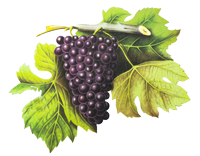Company
The property where the vineyard is installed was acquired by the great-grandfather of the current winemaker in the first quarter of the sec. XX and exploited according to what is convenient in each season – initially cattle with the pig at the head.
As a result of the Spanish Civil War, followed by World War II, which created huge shortages of everything in Europe, the Government at that time initiated a policy to promote cereal production. It was the golden age of Alentejo Agriculture, until the sixties/seventies when it was necessary to look for complementary alternatives. Among these the vine.
We opted for the table grape, which was then in great demand in the Granja/Amareleja region because it came very early, right after the Algarve, which was short and lasting, but it was the one that lasted until later. Em anos especiais a vindima chegava a dezembro. In special years the vintage arrived in December. Prices were, during the summer, approximated throughout the country, but when the first rains arrived, they rose sharply, reaching values that are now unbelievable.
Reason – a variety, Diagalves. It is a variety, today, practically non-existent, which was considered bivalent – table and wine. Producing poor quality wine and not being excellent for the table, it had the enormous advantage of being resistant to rain due to the hardness of its skin.
So when the first waters came that made the traditional table grapes unusable throughout the country, the Diagalves harvest began, which became more expensive, not only because of its lack in the market, but also to hang it in the pantry of houses, where it was also known as “Pendura” , arriving great for the Lisbon tradition of eating grapes on New Year’s Eve, where they called it “Amareleja”.
This market ended with the establishment of greenhouses and cold stores that started to supply us with fresh grapes all year round.
Once this market was finished, conversions of the vines in this micro-region began.
We tried to find the varieties that would best adapt to the region.
We implemented our own dam irrigation.
With the end of the Diagalves tableware period, in the early 90’s we started to vinify it for which we created a mini wine cellar which we then restructured, adapted and improved.
The “friends of the jaguar” say that we could have done better. It’s possible.
Friends say the result was excellent.
It’s up to you to prove and decide.
Thank you! Or as they say in Beira, the original land of our family, BEM HAJA.
We produce the grape in a sustainable way, concerned about the environment. We adhere to the standards of “Integrated protection” and greening, which prevent erosion and minimize pollution caused by chemical agents, which are used in extreme cases.
Until the sprout of the strains, the herbs are controlled by grazing sheep and post-bursting by mechanical means, thus avoiding the use of pesticides.
The much needed water is powered by solar energy and in distribution we are also introducing photovoltaic panels.
varieties
Alfrocheiro

Aragonêz

Alicante Bouschet

